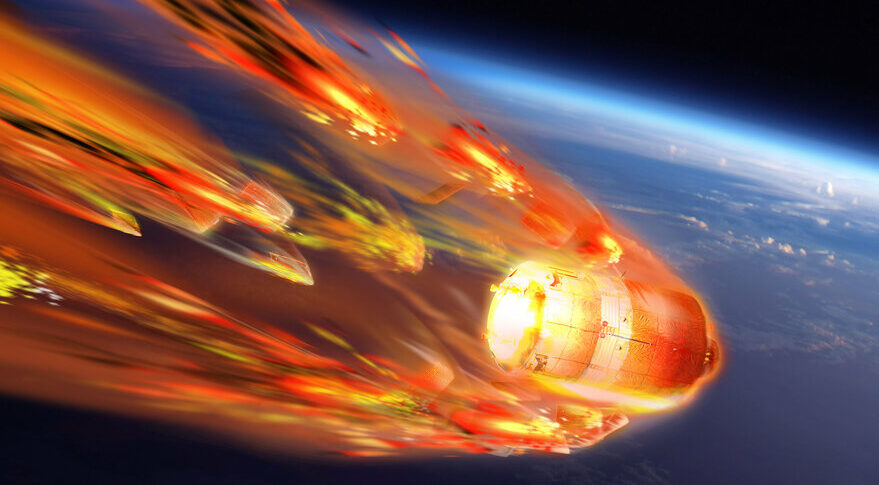On Sunday, as speculated earlier, a huge segment of a Chinese rocket Long March-5B rocket, which had launched the first module of China’s new space station into Earth orbit on April 29.
It was a milestone for China in its ambitious plan to establish a permanent human presence in space. China has invested billions of dollars into space exploration, boosting its global stature and technological might.
The fallen segment weighs about 18 tonnes and has managed to re-enter the Earth’s atmosphere, falling in the lap of Indian Ocean.
“After monitoring and analysis, at 10:24 (0224 GMT) on May 9, 2021, the last-stage wreckage of the Long March 5B Yao-2 launch vehicle has re-entered the atmosphere,” Chinese Manned Space Engineering Office issued a statement, notifying the coordinates of the crash.
“Operators confirm that the rocket actually went into the Indian Ocean north of the Maldives,” it tweeted.
The descent of the object burnt up other segments of rocket after disintegration. It remains unknown whether the debris impacted land or water.
The complete rocket was about 108 feet tall and weighed nearly 40,000 pounds when launched. After its fuel was fully consumed, the rocket surfed through space uncontrolled until Earth’s gravity dragged it back to its surface.
Although the space junks face immense amounts of heat and friction when they enter the atmosphere, that eventually causes them to burn up and disintegrate, but this was not the case with this segment as it was big enough to be completely evaporated.
The remnant segment fulfilled the expert predictions for any debris to have splashed down into the ocean, given that 70 percent of the planet is covered by water.
This junk hit attracted a widespread public interest and speculation because it was an uncontrolled descent and the world wanted to know where the debris would land.
Without any exact match, it could probably fall anywhere, any region, any country, any home.
The US and European space authorities were continued tracking the rocket and predict its re-entry so that if required, a mishap could be averted.
The US military’s Space Command reported the rocket to have “re-entered over the Arabian Peninsula at approximately 10:15 pm EDT on May 8 (0215 GMT Sunday)”
International Space Agencies about the fall: The big Blame game
Chinese officials in Beijing disregarded the fall by saying that there was little risk from the freefalling segment.
“The probability of causing harm to aviation activities or (on people and activities) on the ground is extremely low,” foreign ministry spokesman Wang Wenbin said Friday.
NASA along with few Independent Experts, have accused China of behaving “irresponsibly”, as any uncontrolled re-entry of such a large object risk lives and livelihoods.

According to data by Harvard-based astronomer, this is one of the fourth-biggest objects in history to undertake an uncontrolled re-entry.
They claim that though the risk is usually low, but this sort of wreckage can land on the surface of the planet causing damage and casualties.
A year ago, another Chinese Long March rocket debris fell on villages in the Ivory Coast. It was certain to cause structural damage but fortunately, no injuries or deaths were caused.
NASA Administrator explains: “Spacefaring nations must minimize the risks to people and property on Earth of re-entries of space objects and maximize transparency regarding those operations”.
“It is clear that China is failing to meet responsible standards regarding their space debris.”
Experts’ recommendations amidst the Fall:
To avoid such mishaps further, an absolute redesign of the Long March-5B rocket has been recommended, including provision of a controlled descent.
This happened because Long March-5B was designed to leave these big stages while circling in low orbit.
Since years, the cognizance of such space junk has triggered a debate amongst Experts. Growing debris is a threat to any new spaceflight and existing ones.

Problem lies in the fact that there is no international law or rule as of now to curb such wild space endeavors but the Countries generally refrain form leaving their trash unattended and unbated.



